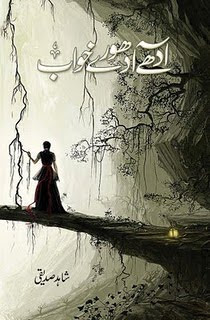Book Review: Adhe Adhoore Khawab

The novel ‘Adhe Adhoore Khawab’ by Dr. Shahid Siddiqui is a call at the right time for the practicality of education in the society. It is a unique attempt to use the genre of Urdu novel to deal with the themes of education, politics, and justice. The protagonist, Professor Roy, is an inspirational teacher who touches the lives of students and becomes an eternal source of motivation for them. The story opens with Professor Roy’s returning to his old city of work where he had taught in a well known education college called Professional Teacher College (PTC). He by coincidence meets Imtisal Aga, a current TPC student who is an enthusiastic girl interested in bringing a radical change through education. Imtisal belongs to a small village of the mountainous region and has come to the city for a teaching course in the same college where Professor Roy had taught. She has heard a lot about Prof Roy as a radical educationist but has never met him. The chance meeting turns into
